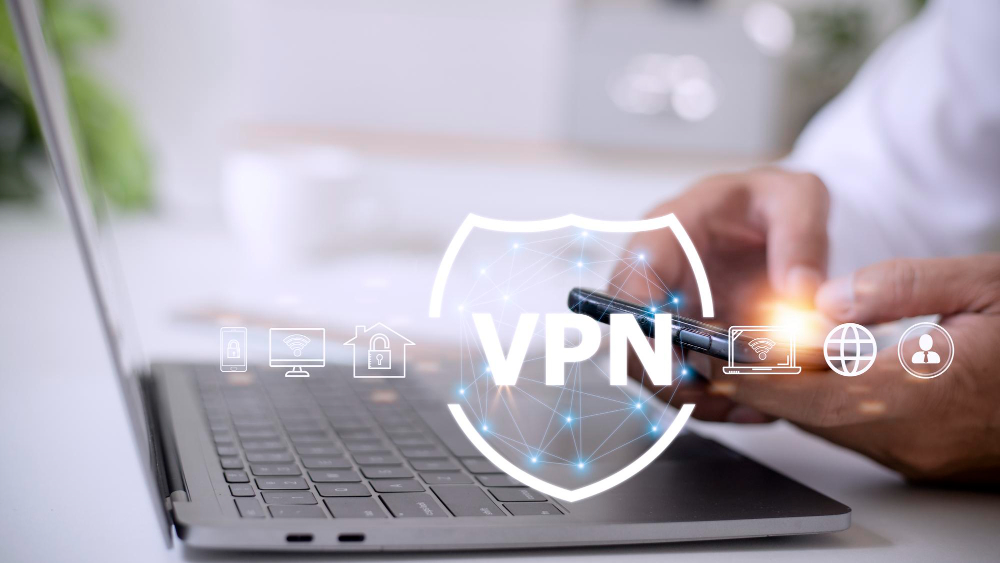As businesses increasingly migrate their infrastructure to the cloud, maintaining secure and reliable connections between on-premises environments and cloud services has become a top priority. One of the most fundamental tools to establish such secure connectivity is a Virtual Private Network (VPN). Within the Amazon Web Services (AWS) ecosystem, the role of a VPN is even more vital, allowing organizations to bridge their private data centers with cloud-based resources in a secure and seamless manner.
To understand the purpose of a VPN in AWS, it’s essential first to grasp what a VPN does. A VPN creates a secure “tunnel” over the internet, encrypting the data transmitted between two points. This ensures that sensitive data is protected from unauthorized access during transmission.
Contents of Post
Why Use a VPN in AWS?
Amazon Web Services offers a robust infrastructure for building scalable and highly available applications. However, not every component of a business can or should move to the cloud overnight. Some workloads need to remain on-premises due to compliance, legacy systems, or operational needs. This is where a VPN becomes crucial.
Here are some key purposes of using a VPN in AWS:
- Secure Communication: A VPN encrypts traffic between your on-premises network and AWS, ensuring data remains private and protected.
- Hybrid Cloud Architecture: It enables a hybrid environment where workloads can span on-premises data centers and AWS instances.
- Remote Access: Engineers and administrators can securely access AWS resources from remote locations.
- No Public Exposure: VPNs reduce the need for exposing services to the open internet, lowering attack surfaces.

Types of VPN in AWS
AWS provides a few different methods for setting up VPN connections depending on your needs:
- AWS Site-to-Site VPN: This allows a secure IPsec tunnel from your on-premises data center or branch office to your AWS Virtual Private Cloud (VPC). Ideal for organizations with existing infrastructure that want straightforward integration.
- AWS Client VPN: A managed client-based VPN service that allows users to connect securely to AWS and on-premises networks. Perfect for remote employees and teams needing flexible access.
- Third-party VPN Solutions: Available in the AWS Marketplace, these can offer more advanced features or compliance-specific capabilities, often used by enterprises with specialized network requirements.
How It Works
When setting up an AWS VPN, a Virtual Private Gateway is attached to your VPC on the AWS side, and a Customer Gateway is configured at the on-premises end. These two gateways communicate securely over an encrypted IPsec connection. This setup allows your internal network to behave as though it extends into the cloud, offering seamless communication between both environments.

Using AWS VPN, the resources in your VPC can be made accessible via private IPs, so your servers, databases, or applications don’t need to be publicly reachable. This reduces exposure to potential threats and aligns with best practices in cybersecurity.
Benefits of an AWS VPN
There are multiple benefits of implementing a VPN within your AWS environment:
- Security: All traffic is encrypted using standards like IPsec, ensuring confidentiality and integrity of your data.
- Cost-Effective: Setting up AWS VPN can be significantly cheaper than leased lines or MPLS connections.
- Scalability: Easily connect multiple sites or mobile workers to your AWS environment as your organization grows.
- Redundancy and Resilience: AWS supports multiple tunnels for high availability and failover capabilities.
When Should You Use AWS VPN?
AWS VPN is a good fit in scenarios such as:
- Extending an on-premises network into the cloud
- Running hybrid architectures that span data centers and AWS resources
- Establishing secure developer or employee access to AWS without exposing services publicly
- Creating backup routes in the event of networking failures
Conclusion
In a connected world where security and reliability are paramount, a VPN in AWS plays an essential role. Whether you’re gradually shifting workloads to the cloud or maintaining a hybrid setup, VPN solutions in AWS provide the security and flexibility needed to integrate disparate environments seamlessly. With options ranging from Site-to-Site VPNs to managed Client VPNs, AWS ensures that you can build secure, robust, and scalable network topologies on your terms.
Investing in a well-configured AWS VPN is more than a best practice—it’s a strategic move to future-proof your cloud infrastructure.

